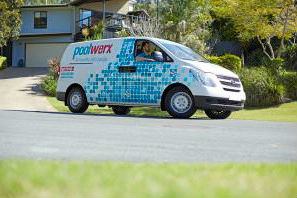Rebate programs for variable-speed pumps are helping boost compliance with Florida’s new energy code.
The programs, administered by Gulf Power Co. and Gainesville Regional Utilities, offer incentives of $600 and $250, respectively, for customers who install one of several accepted models. Though the programs don’t require it, both companies also have partnered with local pool contractors to handle installations.
“It’s been an absolute godsend having GRU as a leader on the pump rebates,” said Dino Muggeo, owner of Fun State Pool Service in Gainesville, Fla. “It’s made it really easy for us.”
In mid-March, building officials began enforcing the 2010 Florida Energy & Conservation Code. Similar to laws in California, the code tightly restricts the use of single-speed pumps in favor of multi- and variable-speed units.
The requirements apply to pools built after March 15, 2012, and to replacement pumps.
In a state whose economy was among those hardest-hit by the recession, many pool professionals have bristled at the thought of requiring homeowners to spend an additional $1,000 to $2,000 to comply with new regulations. Instead, consumers may simply choose to ignore the law altogether, they’ve argued, which could in turn encourage illegal or unlicensed activity.
But incentive programs, such as those offered by the two North Florida utilities, are seen by many as silver linings to a cloudy landscape.
Gulf Power’s program officially kicked off in 2011, and counted approximately 1,100 participants its first year, said Jeff Rogers, corporate communications supervisor. By early March of this year, the utility had already signed on another 250 customers, “far exceeding our goals,” he added.
GRU’s rebate offer has been available for five years, said Jim Gilmartin, engineer utility designer at GRU, which is owned by the city of Gainesville. In addition to the $250 payout to consumers, it provides $25 to partnering contractors, who also benefit from inclusion on direct mail pieces and postcards. The utility further promotes the program through print, Web and TV advertising.
At Fun State, Muggeo said his pump replacement business has accelerated. In 2011, he averaged about two installations per week, a rate that doubled in the first two months of this year.
What’s more, as a member of the Florida Swimming Pool Association’s Energy and Sustainability Committee, Muggeo has helped spearhead efforts to educate utility companies statewide on the potential energy savings of multi- and variable-speed pumps. Among those efforts was a meeting in Orlando last year with the Florida Municipal Power Agency, which represents the interests of 30 municipal electric utilities.
Feedback was positive, Muggeo said, and at least six separate utilities have since distributed brochures produced by FSPA to their energy auditors, who subsequently inform consumers of potential savings.
While municipally owned utilities generally have been more receptive to rebates and energy-savings (most, for instance, don’t want to incur the costs of building additional power plants), the real challenge, Muggeo said, lies in generating enthusiasm among the larger, stockholder-owned utilities.
“It’s harder to get them to go along with it,” he added, “if for no other reason than they don’t want to tell their shareholders that they’re giving back money.”



